'Strategies need to be developed to guarantee free voting in the 2026 elections': Registrar

In an interview with EL TIEMPO, the national registrar, Hernán Penagos , made an assessment of the atypical elections that took place this Sunday in the department of Putumayo. He also spoke about the upcoming elections this year and those of 2026.
According to Penagos, the organization of these elections in Putumayo leaves a wake-up call to take into account in view of the electoral events of next year: defining strategies to guarantee the right of citizens to vote freely. In Putumayo, this right has been threatened by the interference of illegal armed groups.
There was a lot of expectation for the Putumayo elections. What is the assessment from the Registrar's Office? 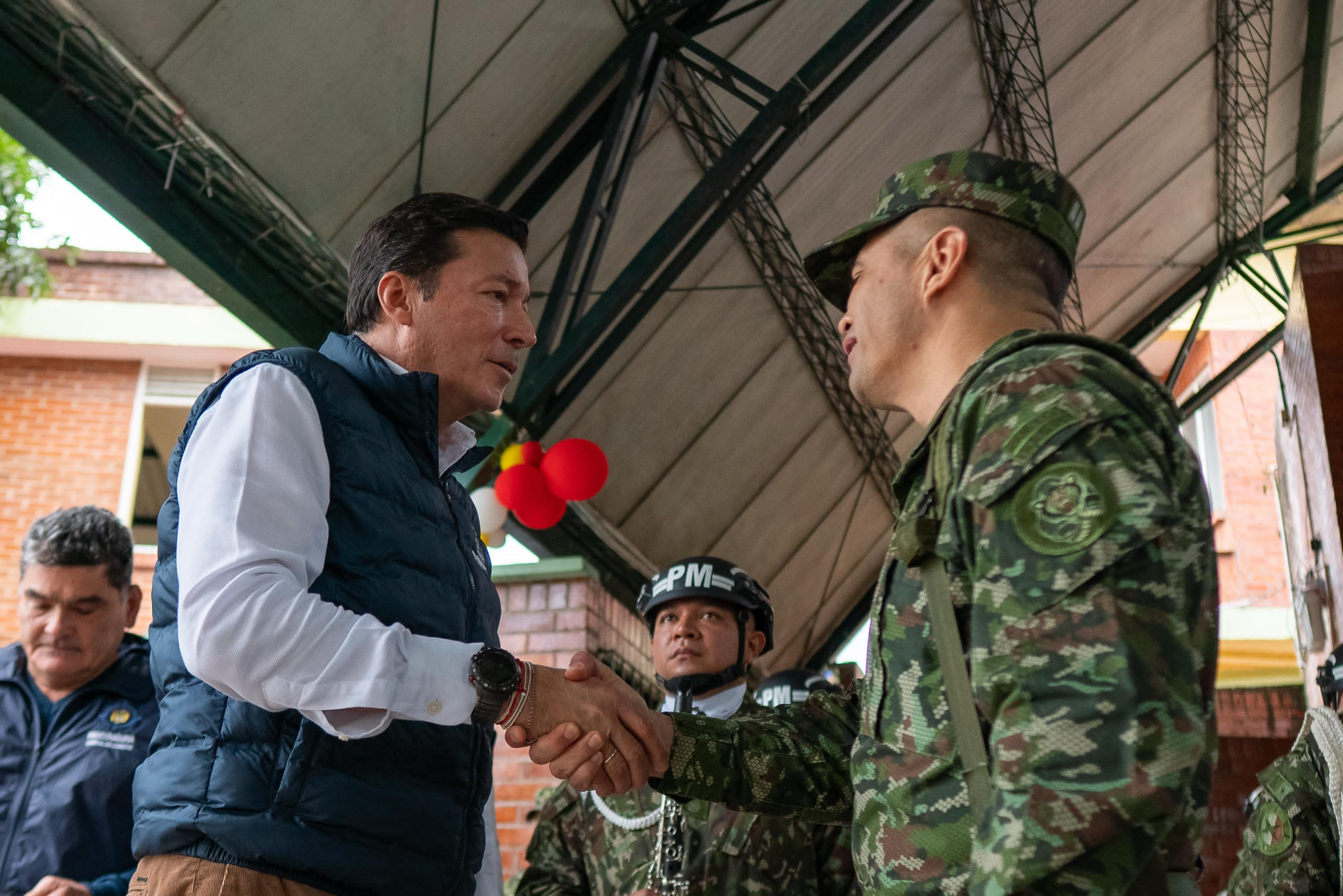
Hernán Penagos was in Mocoa, Putumayo, this Sunday. Photo: Registry Office
The balance is very positive and I say this for several reasons. The first: all the electoral materials and forms were delivered to every corner of the department; this is no minor issue. We have been in a situation of security that is no secret to anyone, but also with a very complex winter wave. Being able to reach the 717 voting tables with all the electoral material was already a major challenge.
Secondly, at 8 a.m. all the voting tables in the department were ready with their voting juries, with the Public Force accompanying them, and that in all of them the citizens had the capacity to exercise the right to vote is also an important issue.
Were there no reports of public order problems? No issues related to public order or circumstances that impede the normal course of the electoral process have been reported.
You say that up to 30 atypical elections could take place this year. What lessons do these Putumayo elections offer and what things do you think will need to be strengthened for the elections that are on the horizon? 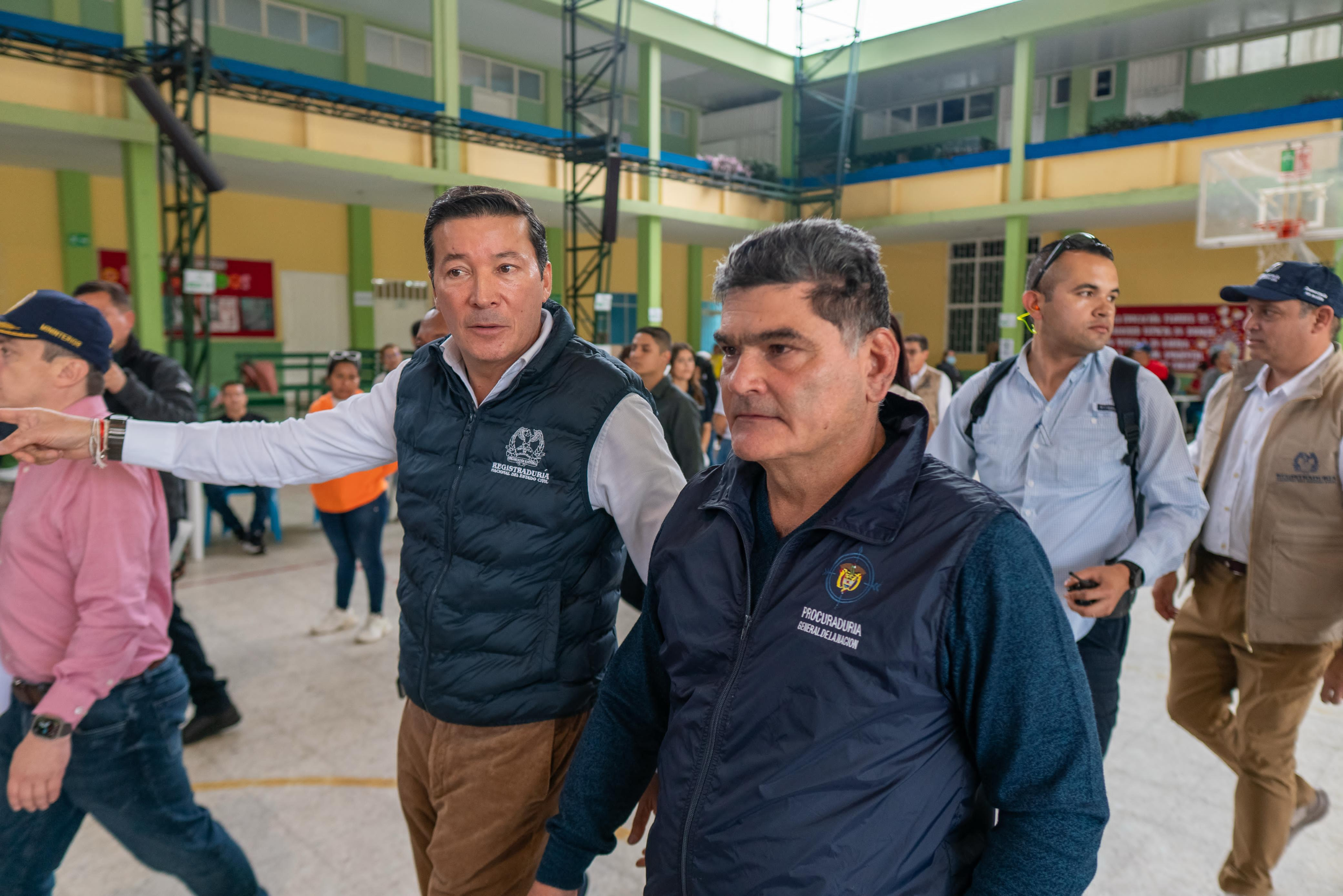
Hernan Penagos and Gregorio Eljach in Mocoa. Photo: Registry Office
The first and most important thing for me is to make clear the importance of the coordination of all the State entities in the face of the electoral processes. The Registry is in charge of the administration and logistics of the elections. Here there must be a presence of the State as a whole, of all the institutions. I appreciate and emphasize that in this electoral process we were accompanied by the Comptroller General of the Republic, the Attorney General of the Nation, and the Public Force.
Secondly, these elections are calling our attention to the need to make decisions on electoral follow-up in plenty of time . As I have said for three weeks, to talk about a specific issue: the issue of security in the country. That is, to begin to have clear the places, the risk maps, those places where it is necessary, from now on, to make decisions and put together strategies to guarantee the right to a free vote in next year's elections. That is an issue that we must deal with immediately.
These elections call our attention to make decisions about electoral monitoring in advance. That is, to have clear locations, risk maps, those places where it is necessary, from now on, to make decisions and create strategies to guarantee the right to a free vote in next year's elections.
For atypical elections - today we have 19 already with the obligation to call and we can reach 30 due to first instance rulings against mayors or governors - they are contingency resources . That is, the Registry requests them based on the rulings that are being issued, because obviously no one has to have that resource in the coffers. These resources have already been requested from the Ministry of Finance; I hope that, between now and next week, they will be available to continue calling elections in other municipalities.
What about the resources for the 2026 elections? The resources for the 2026 elections are currently in the General Budget of the Nation, in the section allocated to the National Civil Registry. We are carrying out some ordinary procedures at the Ministry of Finance, which are done from time to time, to begin the logistics processes.
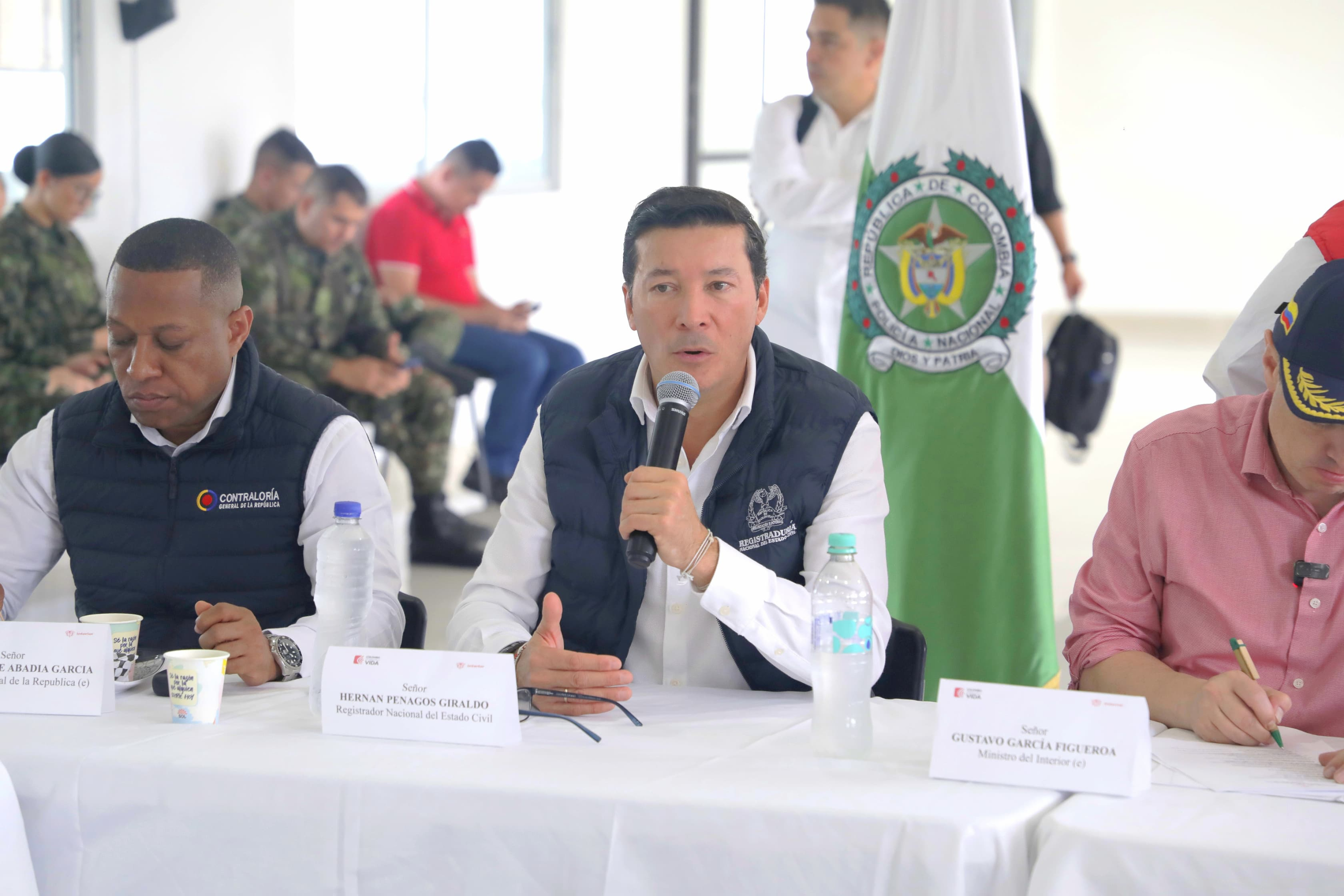
PMU in Mocoa, Putumayo. Photo: Registry Office
Once the last budgetary procedures are completed and what is known as a preliminary survey or prior concept is done, which is a budget figure that is managed by the Ministry of Finance, and we have those resources available, we will make a public call. This public call will be national and international; that is, Colombian and international companies may apply . We will even write to the embassies so that they also transmit this information to companies from different countries. All companies may participate in this call. Of course, the most efficient companies , those with the most experience, those that are proven in the knowledge for the management of electoral processes as monumental as those in Colombia. We sometimes forget that, after Brazil and Mexico, these are the largest elections in Latin America. We are a large geographically, dispersed country, with displacement problems; these are very complex elections to adjust. We are going to make an open process and the best companies that meet the conditions and requirements will come .
The postponement of resources to the CNE generated a controversy around the functions of this entity, which said that the 2026 elections could be affected. It has been said that these frozen resources are for functions specific to the entity that you direct, such as the training of voting juries, pre-counting activities and dissemination, among others. Does the Registry recognize that there is a problem of duplication of functions with the CNE? Of course not. There has not been, nor should there be, any difficulty in the history of Colombia that has to do with duplication of functions or common powers. Why? Because the Electoral Code and the Constitution of Colombia clearly state what the Registry does and what the National Electoral Council does. If you read the last ruling issued by the Constitutional Court on the Electoral Code, which was not approved in Colombia, the Constitutional Court takes advantage of the opportunity to clearly define these powers, which have never been in doubt, but which it is very useful to do so. The CNE is in charge of the inspection and monitoring of the process, but especially of the political parties. The Registry is in charge of the entire issue of administering and carrying out the electoral logistics. In other words, the Registry makes all the tools for the electoral process available to the electoral actors. It makes the electoral material available to the juries, who are citizens, for the counting. It makes all the electoral records available to the judges of Colombia for the scrutiny. It provides the CNE with all the technology for the vote counting process so that it can carry it out. There are no doubts of that nature.
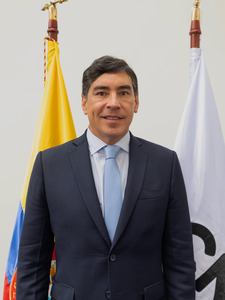
Alvaro Hernan Prada, president of the CNE. Photo: CNE
For its missionary activities, the CNE requires additional resources for inspection, surveillance, witnesses, courts of guarantees, accountability, and, well, it is fine that it requests resources to fulfill a more prominent function. But there are no doubts regarding duplication of functions, none. Yes, the CNE is requesting those resources, which I do not know in detail, but they are resources that it requires to adequately fulfill its constitutional function.
Former Minister Cristo said that working groups would be convened to review the repetition of functions of the CNE and the Registry. Were they able to meet? An initial meeting was held in which the president of the CNE, the Minister of the Interior and myself participated, and the responsibilities of each were made very clear. A second meeting was scheduled to be held to see how to allocate resources for the Electoral Council in its constitutional missions. There was a change of minister, so now we have to wait for the new minister to arrive and see how things move forward, but I insist, the functions are clearly detailed and the Constitutional Court has defined them. There is no difficulty there.
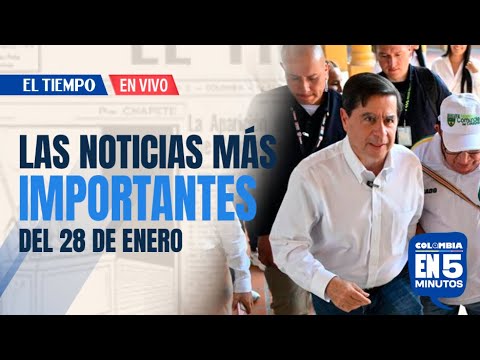
Doubts about the 2026 elections due to the CNE cuts. Photo:
Juan Pablo Penagos Ramirez
eltiempo






